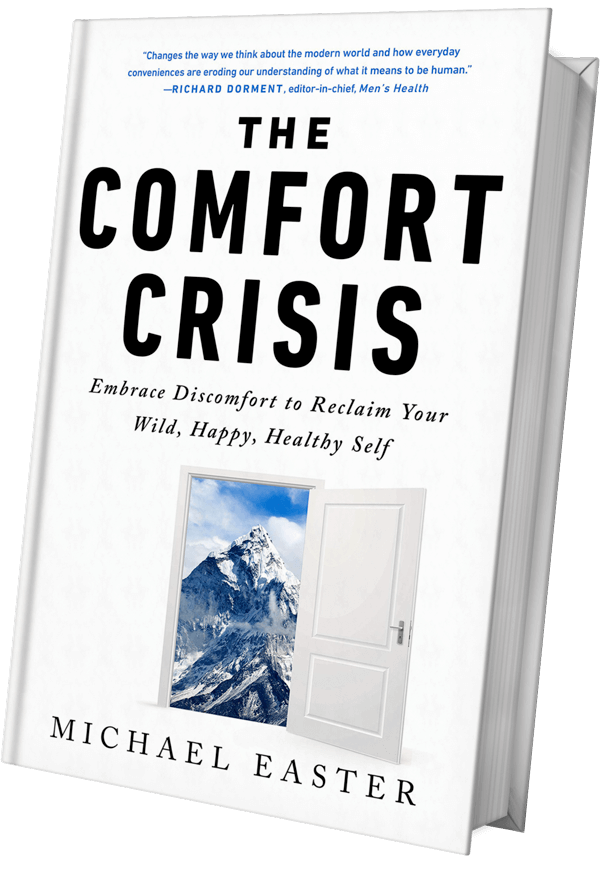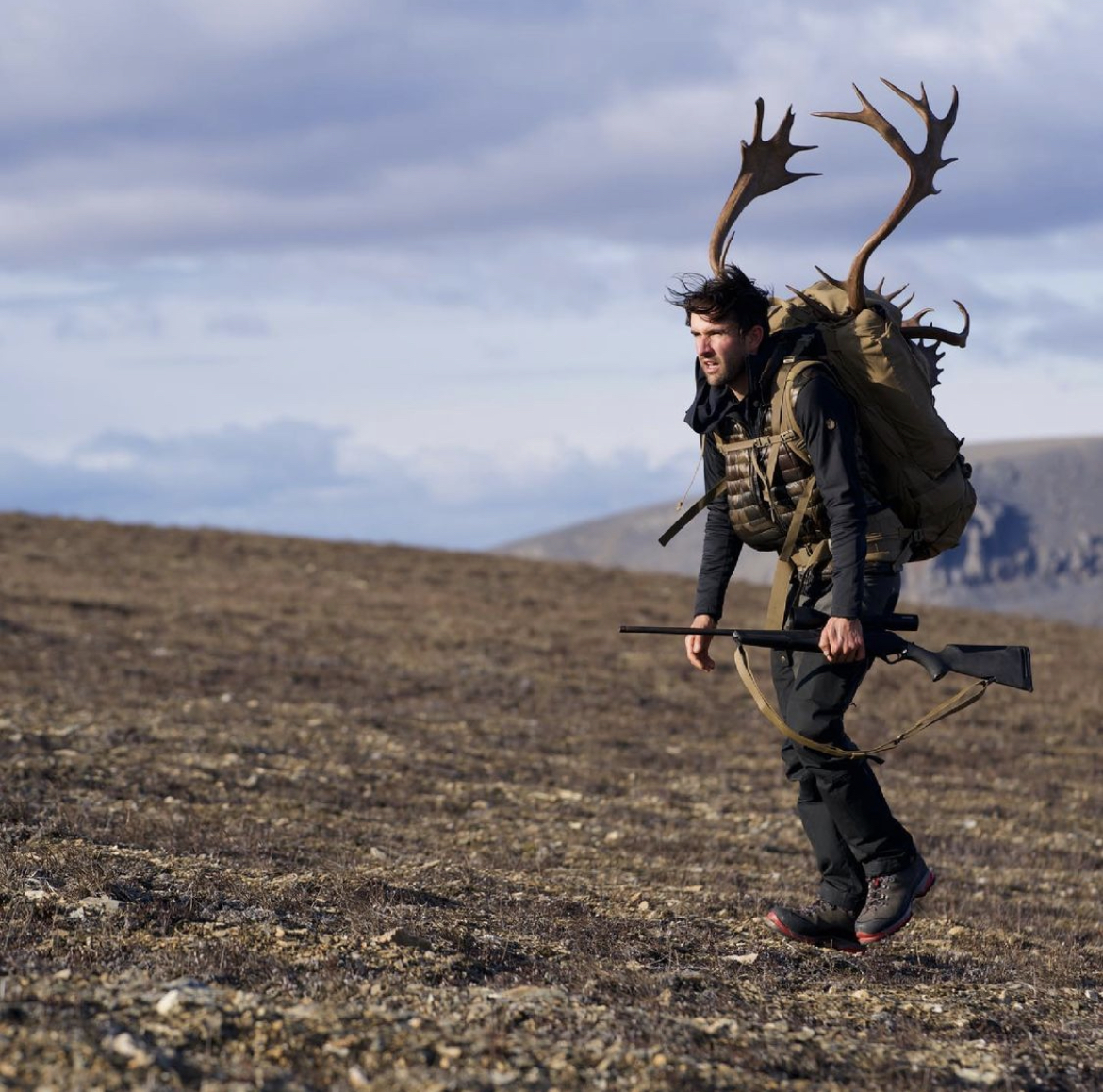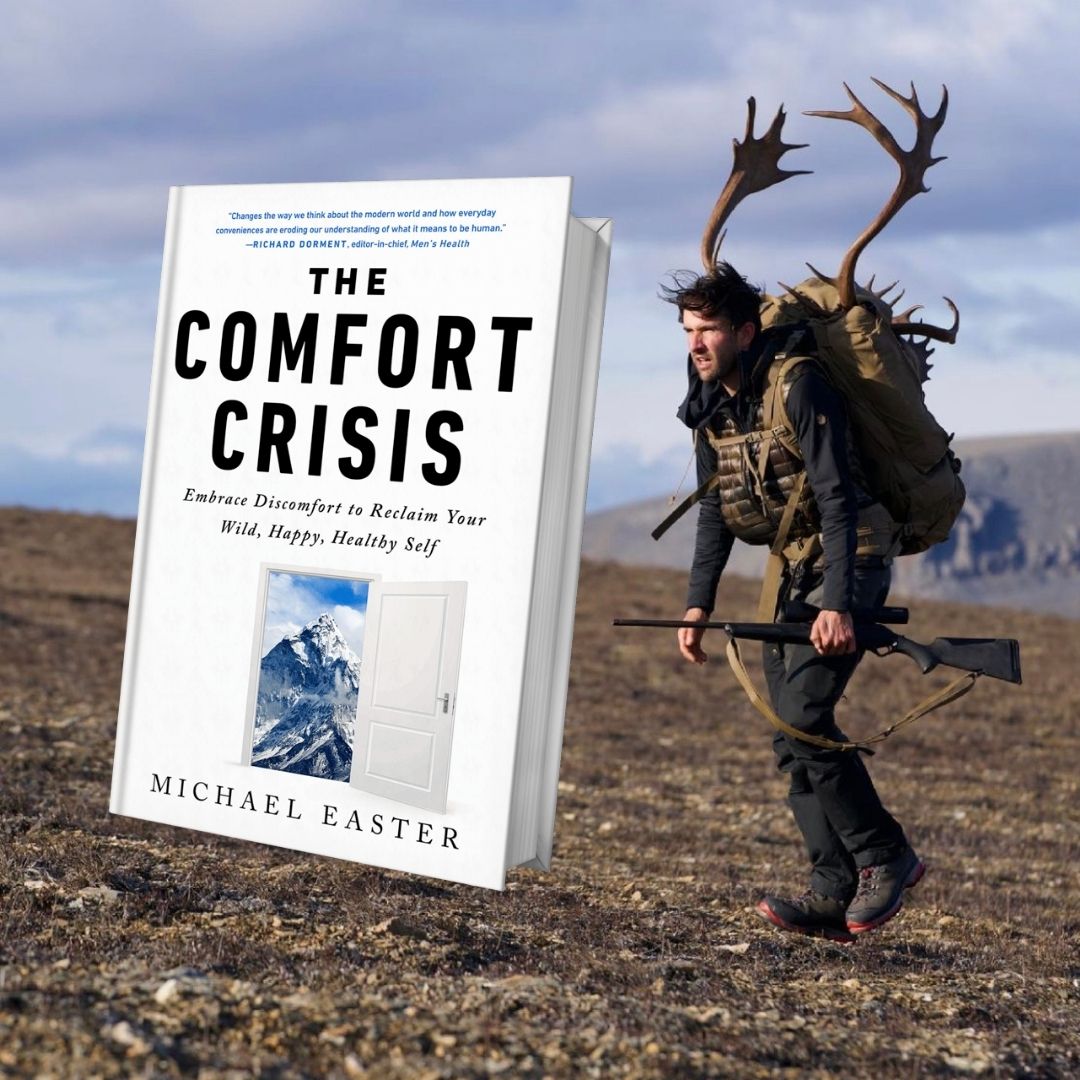How Embracing Discomfort Enhances Health, Happiness and Performance 12/15/2021
 Have you embraced discomfort today?
Have you embraced discomfort today?
The only way we grow - whether physically, mentally, spiritually or in business - is by getting ourselves outside of our comfort zone and pushing past our preconceived boundaries.
Yet many of us don't do this. In fact, evolution has molded us to seek comfort, conserve our energy, and avoid risk. For most of our existence, this served us well: We had to work hard physically to procure our food and flee hungry predators, endured occasional food scarcity and faced harsh weather conditions. So actions such as feasting when food was available, resting whenever we could, and staying away from dangerous or uncertain conditions kept us alive.
But in today's world, in which calorie-dense food is attainable with the click of a mouse, where we live in temperature-controlled environments, we drive to work (or telecommute), and where our largest stressor is a bad internet connection or a typo on a PowerPoint slide, these evolutionary traits favoring comfort are leading to poor health, stress, risk aversion, and unhappiness. The result is that as humans, we tend to operate far below what our capabilities truly are.
In his new book, "The Comfort Crisis: Embrace Discomfort to Reclaim Your Wild, Happy, Healthy Self," Michael Easter shows us how intentionally adding discomfort back into our lives can revive the mental, physical and spiritual vitality we are meant to have, and help us grow personally and professionally to levels we may have thought previously impossible. In my recent interview with Easter (see video below) we explore some of the ways in which this can be done.
Have we grown too comfortable for our own good?
One of the big messages of the book, and where its title comes from, is the fact that we have made ourselves too comfortable in our daily lives, and that comfort can have detrimental effects on us.
“If you think about the average person’s day, most of the things that impact your daily experience is a technology that has been invented in the past 100 years,” says Easter. “And its job is to make your life easier or to require less effort, such as soft beds, temperature-controlled rooms, and online commerce. We no longer have to work hard to get our basic necessities.”
Over time, we have adapted to each of these new comforts so that they have become the norm. What’s more, as each new comfort is introduced, previous comforts become unacceptable, a situation which Easter refers to as “comfort creep.” For example, 20 years ago, if a car had automatic windows instead of ones that had to be rolled up, that was amazing. Now that’s the bare minimum. People expect heated seats, Bluetooth connectivity, Apple CarPlay and parking assist. Anything less is unacceptable. Soon, we won’t even expect to steer our own cars.
Indeed, what we have basically done is engineered movement and physical labor out of our lives, and that is hurting our health progressively over time. “With anthropologists, the nerdy term for it is evolutionary mismatch,” says Easter. “It’s when we evolve in one environment, but then our environment changes and all of a sudden the adaptations that we have backfire.”
In the past, for example, if we had access to rich, calorie-dense food, we would eat as much of it as we can, so when the inevitable lean times hit, the fat on our bodies would help us survive. But now, even with food readily available for many of us, we are still inclined to eat in such a way that makes us gain weight.
And it’s not just out physical health that comfort creep negatively impacts, but emotional and cognitive abilities like resilience and risk tolerance. As hunter-gatherers, we avoided risk and failure at all costs, because they could often result in death. Nowadays, where the stakes are much lower (we won’t die if we screw up a presentation, for example), we still let fear prevent us from taking risks that may benefit us personally or in business.
“From an entrepreneurial standpoint, this innate fear we have of failure and the resulting tendency to avoid risk if often what stops us from taking the steps we need to move our business forward,” says Easter.
Misogi: Exploring our potential at the edges
One way to break through these barriers caused by comfort creep is to purposefully engage in activities that take us out of our comfort zone, that challenge us physically and mentally, and test the limits of our capabilities.
Enter the concept of Misogi. While the term originally referred to a Japanese Shinto practice of ritual purification by washing the entire body, it has been adapted by Dr. Marcus Elliott to refer to using epic challenges in nature to “reset” the mind, body and spirit and expand your capabilities. Elliott is a Harvard trained physician specializing in performance enhancement and the development of elite athletes, and through his company P3, works with professional sports teams and leagues to optimize athlete’s performance.
There are two rules to a Misogi as Elliot defines it. First, it has to be REALLY hard – with only a 50 percent chance of success. Second is, you can’t die. In other words, it has to be relatively safe.
“The idea is, if you have picked an appropriately hard task, you are going to hit a point where you think you cannot keep going, where you have reached your edge,” says Easter. “But if you are able to keep going, you are going to have a moment where you can look back and say, ‘I thought my edge was back there, but now I’m clearly past it, so I’ve sold myself short here.’ And that leads to the bigger question, which is, if I’ve sold myself short here, where else in my life am I selling myself short?”
Indeed, Easter says it’s essentially a psychological and even spiritual task that is masquerading as something physical that tells us something about our potential. The Misogi Easter embarked on, which he details throughout the book, was a 30-day hunting trip in the backwoods of Alaska, during which he had to endure extreme weather, lack of food, roaming bears, hiking for miles in the snow and extremely long bouts of silence and boredom (there was no cell service).
Once he returned home, he realized that he was FAR more capable mentally and physically than he had originally given himself credit for, and that things that would previously have caused him stress or annoyed him ceased to be an issue anymore. Both of these enabled him to up his game as a journalist and a professor.

One doesn’t have to trek into the Alaskan woods to perform a Misogi, however. “The beauty of the misogi is that it’s relative,” says Easter. “My mom’s done one and she’s 72 years old. You have to adjust it to your abilities. The key point is that there is a 50 percent chance you won’t complete it, it’s that simple.”
Introducing discomfort into our lives
There are some simple ways in which we can incorporate doses of discomfort into our own lives that would benefit us both us physically and mentally, and help us to stretch the boundaries of our capabilities. In addition to a misogi, other examples include:
Fasting: “Reintroducing hunger into our lives has a lot of benefits,” says Easter. “Nowadays we eat because a clock tells us to, or because we are bred or stressed.”
Rucking: One thing that Easter learned from his research around his Alaska trip was that, moreso than any other animal, humans are built for carrying loads long distances. It’s what enabled us to hunt and gather in the past. Re-introducing this into our lives via hiking with a weighted backpack, or “ruck” delivers both strength and cardio benefits. (I myself have taken up rucking with equipment from a company called GoRuck that is mentioned in the book, and I've fallen in love with it, doing it almost daily now.)
Embracing boredom: This is a difficult one for many of us in our connected age, but purposefully incorporating bouts of boredom or “mind wandering” into our lives delivers tremendous benefits in terms of productivity and creativity, according to Easter's research. Just a 20-minute walk each day with no phone (emphasis on NO PHONE) refreshed the mind and helps spur on creative thinking.
More time in nature: This one, especially when done in conjunction with boredom, is great for de-stressing, and when done as little as three times per week for 20 minutes can have the same effect on the mind as does meditation.
Other ways include simple adjustments to doing things more like we’ve done in the past. Walk instead of drive, take the stairs instead of the escalator (apparently only 2 percent of people take the stars when an escalator is available), use a standing desk for work – even something as simple as prepping and cooking your own food versus ordering in is a small step in the right direction.
Over time, you’ll see that these smaller challenges become easier and easier, and you can crank up the difficulty to levels you previously thought impossible. What you’ll find, as Easter notes, is that the benefits from adding discomfort in one area of your life spread to all other areas of your life.
As Easter noted: Where are YOU selling yourself short? There’s only one way to find out, and that’s by getting a bit uncomfortable!

